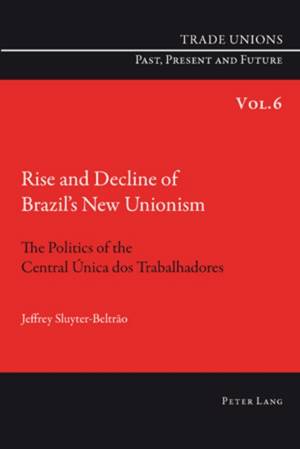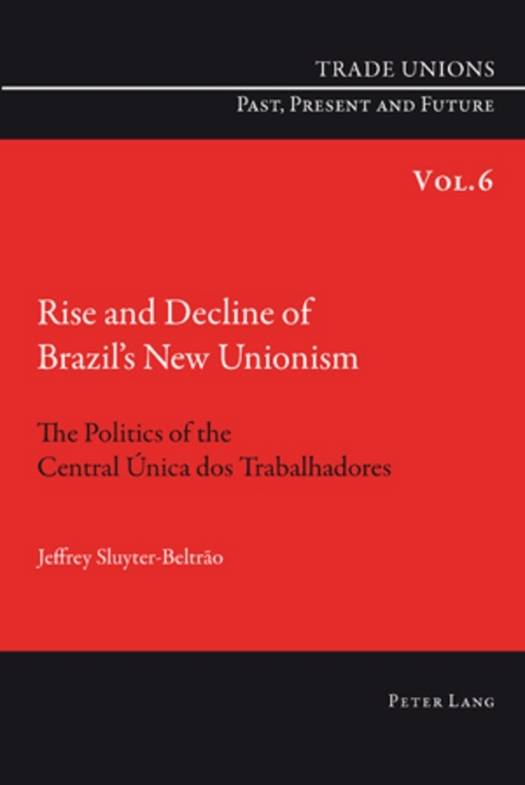
Bedankt voor het vertrouwen het afgelopen jaar! Om jou te bedanken bieden we GRATIS verzending (in België) aan op alles gedurende de hele maand januari.
- Afhalen na 1 uur in een winkel met voorraad
- Gratis thuislevering in België vanaf € 30
- Ruim aanbod met 7 miljoen producten
Bedankt voor het vertrouwen het afgelopen jaar! Om jou te bedanken bieden we GRATIS verzending (in België) aan op alles gedurende de hele maand januari.
- Afhalen na 1 uur in een winkel met voorraad
- Gratis thuislevering in België vanaf € 30
- Ruim aanbod met 7 miljoen producten
Zoeken
Rise and Decline of Brazil's New Unionism; The Politics of the Central Única dos Trabalhadores
The Politics of the Central Única dos Trabalhadores
Jeffrey Sluyter-Beltrao
€ 110,95
+ 221 punten
Omschrijving
This book explores the political trajectory of Latin America's most important contemporary labor movement. The New Unionism played a central role in Brazil's struggle for democracy in the 1980s and recast the country's subsequent party politics through its creation of the innovative Workers' Party (PT). The author breaks new ground by analyzing this celebrated prototype of social movement unionism as a heterogeneous alliance of component factions that evolves in relation to shifting economic, political, and ideological contexts. Through the prism of internal politics, he shows how Brazil's transitions - from military-authoritarian to liberal-democratic rule, from statist to free-market economic policies, and from a Leninist to a post-Leninist left - undermined the independent labor movement's commitments to internal democracy, political autonomy, and societal transformation. The book concludes with a comparative assessment of Brazilian, South African, and South Korean social movement unionisms' shared dilemmas, arguing that an adequate understanding of their relative declines demands more rigorous attention to the dynamic nexus between internal movement politics and shifting external environments.
Specificaties
Betrokkenen
- Auteur(s):
- Uitgeverij:
Inhoud
- Aantal bladzijden:
- 468
- Taal:
- Engels
- Reeks:
- Reeksnummer:
- nr. 6
Eigenschappen
- Productcode (EAN):
- 9783034301145
- Verschijningsdatum:
- 17/08/2010
- Uitvoering:
- Paperback
- Formaat:
- Trade paperback (VS)
- Afmetingen:
- 152 mm x 229 mm
- Gewicht:
- 644 g

Alleen bij Standaard Boekhandel
+ 221 punten op je klantenkaart van Standaard Boekhandel
Beoordelingen
We publiceren alleen reviews die voldoen aan de voorwaarden voor reviews. Bekijk onze voorwaarden voor reviews.









